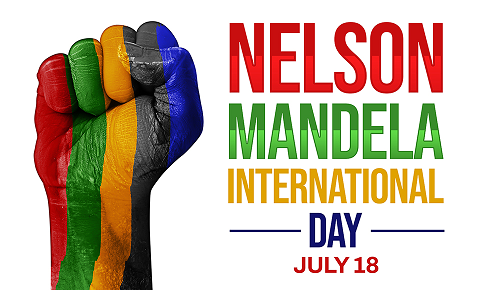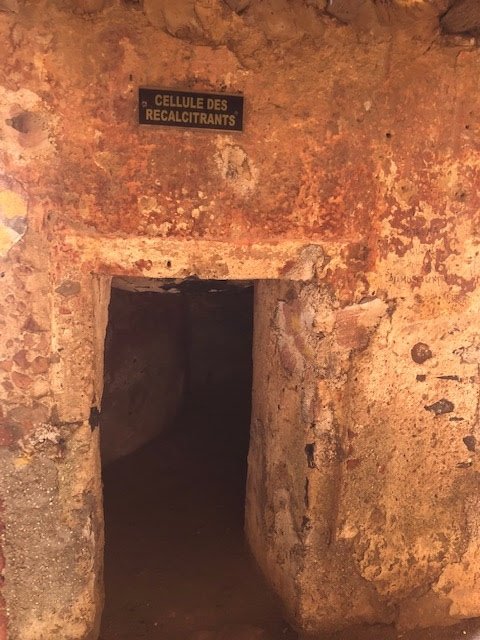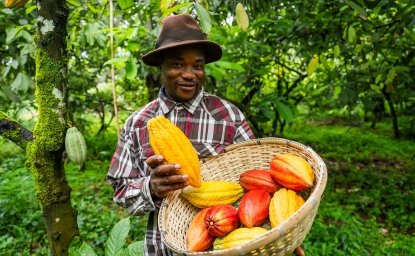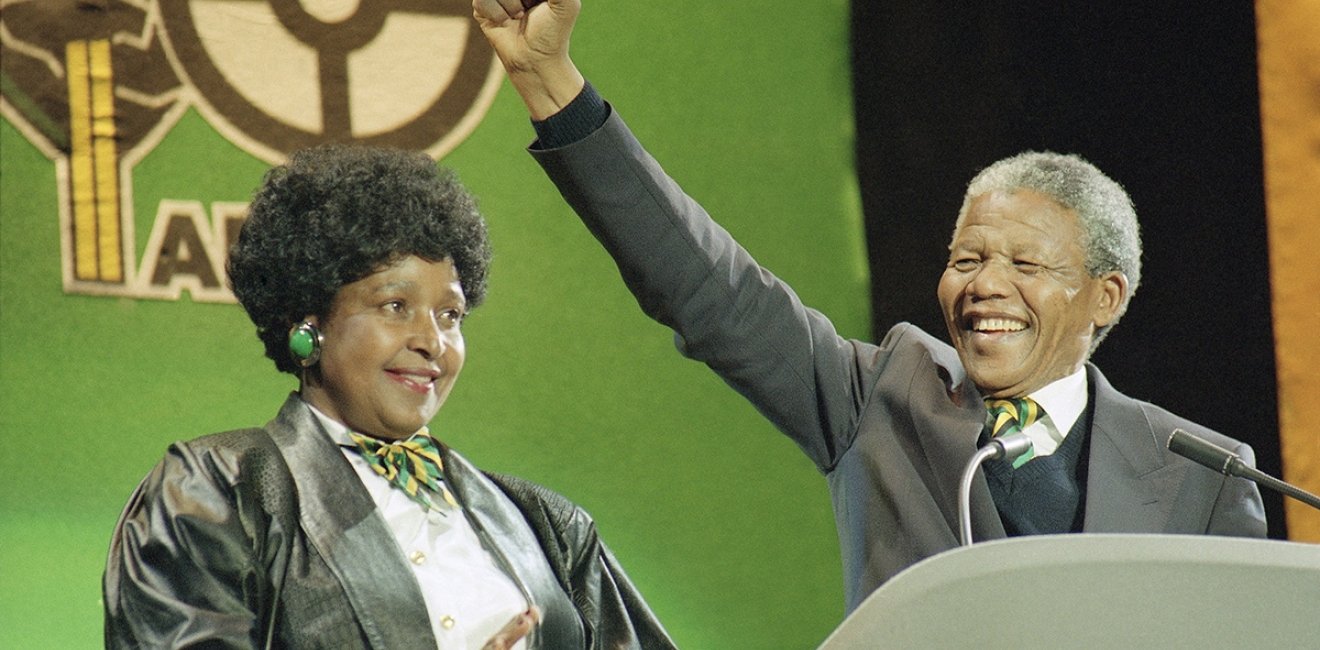
A blog of the Wilson Center
Nearly half of all South Africans were born after apartheid.
July 18 is International Nelson Mandela Day. For most of us, the story of the extraordinary man affectionately known to many by his Xhosa clan name, “Madiba,” is as vivid and inspiring as ever. But for young South Africans?
It has been more than 10 years since Mandela passed away, more than 25 years since he left office, and 30 years since he became South Africa’s first true democratically-elected president.
South Africa, like so much of the continent, is strikingly young. The median age of South African is about 28—it’s almost 39 in America. That means that half of all South Africans were born after Mandela’s election and the end of apartheid. They are, as South Africans call them, the Born Free Generation.
Despite the freedom they’ve enjoyed thanks to the service and sacrifice of Mandela, Archbishop Desmond Tutu, Stephen Biko, and so many of their forefathers, the Born Frees are increasingly restless and disillusioned. Their frustration is hardly irrational. South Africa is the continent’s most industrialized nation yet has a staggering 33% unemployment rate, one of the highest in the world. Youth unemployment (those aged 15 to 24) is 61%. It jumps to an astounding 71% when including those no longer trying to find work.

With Mandela’s election and the formal end of apartheid, many legal and political barriers were dismantled. Yet in 2022, the World Bank ranked South Africa the world’s most unequal country. The top 20% of the population earns more than 68% of income, while the bottom 40% earns only 7%.
Mandela’s beloved political party, the African National Conference (ANC), has essentially been in total power since 1994, until last month’s elections when it was forced into a modest power-sharing arrangement. Youth disillusionment isn’t simply measured in the ANC’s reduced share of the vote, but also by their changing attitudes toward democracy itself. Only 40% of South Africa’s youth are registered to vote. A recent survey by a respected South African think tank found nearly 60% of South Africans aged 18 to 24 do not think that democracy is always the best system of governance. A 2019 survey reported that 70% of South Africans were willing to trade elections for jobs and security.
A number of South Africa's youth see Mandela as ancient history, disregarding his legacy and, at times, even blaming him for their troubles. My late father was born and educated in South Africa. His father and grandfather ran a newspaper there. For me, there will never be anyone like Madiba again.
Early in my congressional career, the South African embassy invited me to a dinner with President Mandela. I quickly realized that he was the single most charismatic human being I had ever encountered—and that’s still true. As a former congressman, ambassador, and USAID administrator, I’ve met a number of world figures and many celebrities, but no one else comes close. Later that evening, it occurred to me that I could be sitting at one end of a crowded stadium, but if he casually walked in at the far end, I would somehow know it. We all would know. THAT was the sense of strength, leadership, and integrity that he projected.
At the dinner itself, I sat a table away from Mandela. During the table small talk, I told a well-known American civil rights leader of my ties to South Africa. He encouraged me to go over to the president’s table and introduce myself. I repeatedly refused, but, sheepishly, finally agreed.
When I stood next to Mandela, I said very simply, “Mr. President, thank you for making it ok to be the son of a South African.”
He smiled gently, and asked where my father was from. I answered Queenstown. His smile broadened, and responded, “Ah, just over from my home place. You must come and see me if you are back that way…”
I didn’t get back to Queenstown and South Africa’s Eastern Cape before he passed away. But I’ll never forget his presence and generous spirit.
Several years and a couple of congressional terms later, I had the chance to visit South Africa again as part of an official delegation. After several days of meetings, while the other members went to visit a game park and see the country’s conservation policies in action, I went in a very different direction…traveling to visit a small village school in the KwaZulu-Natal Province. I’d been invited by an old friend, someone who I taught school with years earlier in rural East Africa, who was now a teacher in South Africa.
When I got to the school, my friend took me to see a couple of small classrooms. They were in astonishingly bad shape. Our little school in western Kenya was full of challenges and short of resources, to be sure, but nothing like what we saw together at this school. The walls were crumbling, the desks were cracked, many falling apart. There was also lots of graffiti.
My friend explained to me that as Nelson Mandela began to slowly recede from his active role in South Africa’s leadership, policymaking, and public life, the moral authority of the government also began to recede. He said to me that when Mandela was president, he could look any young person in the eye and say, “You have an absolute obligation to go to school. It is your sacred duty to your country and your people.” Nobody else has that same standing and it shows in how the schools are kept.
Of course, Nelson Mandela’s life story is quite extraordinary. On June 12, 1964, South Africa’s apartheid regime sentenced him to imprisonment and labor on the infamous Robben Island. He would spend 18 long years there, suffering physically and emotionally. The government separated him from family and friends and cut him off from the freedom movement that had become his life’s very purpose.
When Mandela’s captivity finally ended after those 18 years on the island and another 9 in other prisons, it represented the most remarkable triumph of the human spirit in modern times. The world watched in amazement as a man they hadn’t seen in years emerged unbowed and incredibly free of the bitterness and hatred for which he could have been forgiven.
Some years after my visit to that rundown school in KwaZulu-Natal, I travelled to the West African country of Senegal. While there, I visited Goree Island, once home to one of the darkest and most depraved places on earth, the “House of Slaves.” It was here that many African captives, men and women, were taken in preparation for boarding slave ships bound for the Americas. Among the narrow, dank corridors of the prison is the infamous “door of no return,” through which so many helpless human beings were herded.

While I was there, I learned about another remarkable episode in Mandela’s life. Less than two years after his captivity ended, Mandela himself visited Goree Island and was taken to see the tiny cell where “non-compliant” Africans were held in especially inhuman imprisonment. During the rainy season, the poor drainage often meant suffering souls would have to stand for endless hours in infested water.
The story goes that Mandela insisted upon entering that cell and being left there all alone so he could contemplate the evil which the site represented. This was the man who knew imprisonment, isolation and inhumanity all too well. Sometime later, when he finally left the confines of the cell, reports were that his eyes were red, his face marked by tears.
A few years later, Mandela was elected president of South Africa. Despite Robben Island, despite Goree Island, he never lost his own humanity or belief in the future.
As we mark this year’s International Mandela Day, I would respectfully say to South Africa’s young people—the Born Frees—that they have every right to feel disappointed, disillusioned, and angry. But Madiba and his incredible life of service and sacrifice aren’t the problem…they are the answer. We must all remember what he lived for and dreamed of and do everything we can, together with young people, to make his dream a reality.
This blog was researched and drafted with the help of Camilla Reitherman.
Author


Africa Program
The Africa Program works to address the most critical issues facing Africa and US-Africa relations, build mutually beneficial US-Africa relations, and enhance knowledge and understanding about Africa in the United States. The Program achieves its mission through in-depth research and analyses, public discussion, working groups, and briefings that bring together policymakers, practitioners, and subject matter experts to analyze and offer practical options for tackling key challenges in Africa and in US-Africa relations. Read more

Explore More in Stubborn Things
Browse Stubborn Things
Spying on Poachers

China and the Chocolate Factory

India: Economic Growth, Environmental Realities

